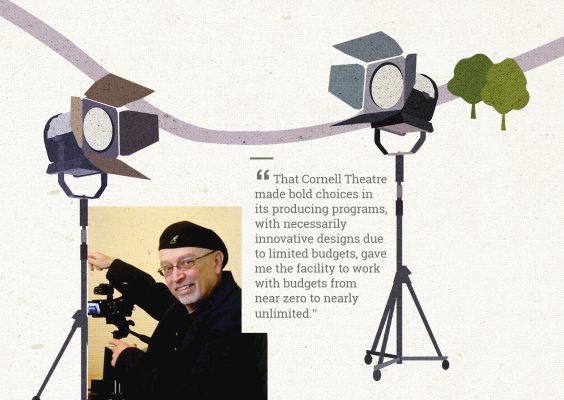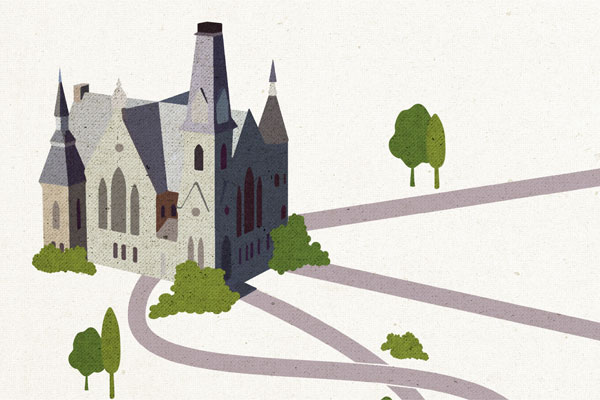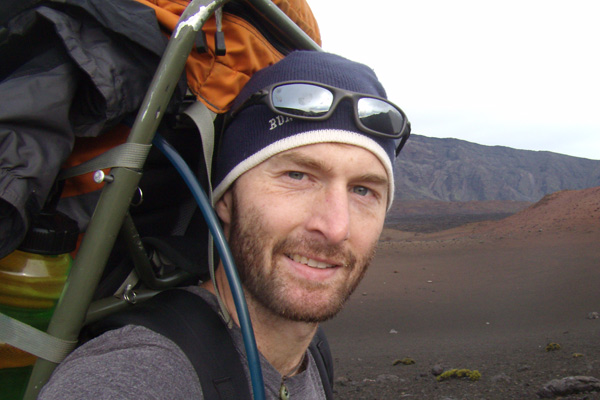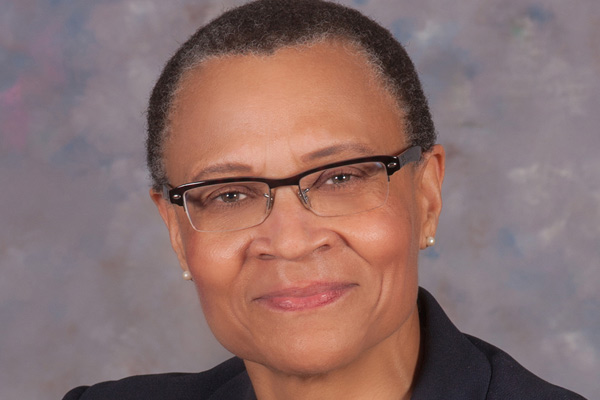The Path of Evolving Crystal Clarity
This is the path of individuals who came to college intent on majoring in something and excelling in it professionally, but then switched to a major and career they never considered.
I arrived on campus in the autumn of 1964 determined to begin work on a biology major, with a special microsurgery project removing the chloroplasts from euglena, on my way to an M.D. and Ph.D. in medicine and a career in neurosurgery.
I settled into the honor dorm and discovered my roommate had been invited to the theatre reception for entering students who had participated in theatre in high school. I had participated in theatre my senior year, so I was quite nonplussed that I had not been invited. After learning it was open to anyone, I attended.
At the reception, already-cast members performed a scene from Aristophanes’ “Lysistrata,” the fall play. I had seen the Lunts do a scene from this play on television and knew it to be rather scandalous. Despite being a perfect Sunday school attendee, I was somewhat a rebellious person, and had to be part of this stirring play. So, I tried out, and achieved not only a role in the chorus, but was cast as one of the leads in a play for children, and then as the Duke in “The Merchant of Venice.” Due to my course load I told the speech and theatre chair that I only desired to be in “Lysistrata.”
The Purple Masquers were so thrilled to have a science major that they asked me to join, and I became an officer. My sophomore year, Cornell graciously sent the Cornell Players’ officers to the Yale Festival of Undergraduate Drama. Raised with Iowa community spirit, I felt an obligation to pay Cornell back, so being urged to direct a play (WHAT? A barely knowledgeable non-theatre major!) and thinking that it would be easier, I decided to direct the children’s show the next year. Little did I know that the reduced attention span of youngsters makes this genre one of the most difficult in which to succeed.
Back on the biology front, extra hours in the lab and an abiding interest in discovery only allowed me to achieve a B+ in comparative anatomy. In my mind, admission to Harvard Med, or perhaps any med school, disappeared. I added a speech and theatre major to my curriculum. The first question from my junior orals committee (biology advisor, theatre advisor, chemistry professor) was, “Why are you double-majoring in biology and theatre?” My response, spur of the moment, not consciously considered, was, “I’m not. I’ve decided to major in theatre.”
Remember the rebellious spirit, and it did disarm the committee.) Their response, “Why?” Through discussion, I eventually arrived at the statement that, though the sciences were creative in their own right, the object of scientific investigation is to arrive at the same results every time to prove a hypothesis; while in theatre, because of the mutable nature of an audience, it is to evolve results which are always different. I passed, but within the year dropped my biology major.
Then in a decision that to me now seems fantastical, I was allowed to direct O’Neill’s “Long Day’s Journey Into Night” for my senior thesis project. And it wasn’t bad. In fact it was selected for encore performances. And perhaps in the most surprising moment of my Cornell career, I was asked to move up the line, as I had graduated with “distinction in my major field.”
After a dance with the military draft, I enrolled in a master/apprentice program at the University of Texas’ M.F.A. theatre program. I went on to teach at the College of the Holy Cross and migrated to the National Center for African American Artists; then independent design and directing, and directing Elder Arts in Boston. Moving to Los Angeles, I had the great fortune to work with and eventually direct Louis Fantasia, an internationally preeminent director, specializing in Shakespeare. I also expanded my career into film and television after completing a certificate program at the UCLA Extension.
A reconnection with Calvin Bowers nudged me into producing and mentoring him, and then the LEL Brothas, a hip hop group that I accompanied to the Kingdom of Saudi Arabia during the Arab Spring, and twice more, to collect footage for an anticipated documentary of this independent American group.
From Socratic circles, to hay bale Parisian discussions, to TED talks, the challenge of presenting cogent arguments within fluid boundaries highlights an elevated atmosphere for learning. Cornell afforded me the opportunity to experience more than the narrow view of career-focused education, and to sample a plethora of courses, experiencing their rigors and joys and various definitions of achievement.
Cornell Theatre gave me the basis to nurture my burgeoning desires and go on to supplement them and achieve a career in the entertainment arts. That Cornell Theatre made bold choices in its producing program, with necessarily innovative designs due to limited budgets, gave me the facility to work with budgets from near zero to nearly unlimited. That I was allowed to direct such a major work from the theatre canon, at such a young age, definitely gave me the confidence that anything was possible.




